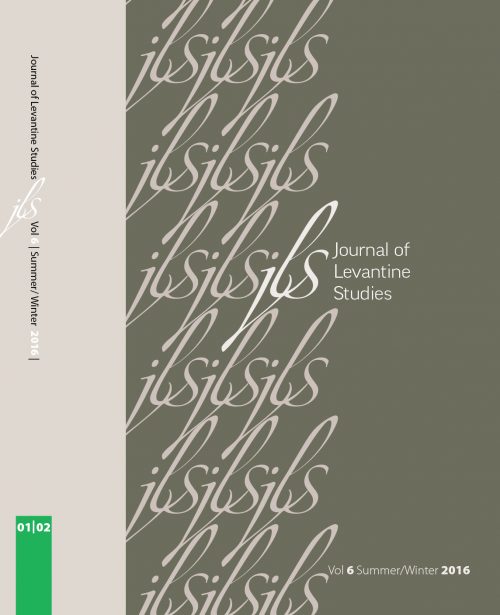-
Add to cartQuick view
The Assimilation of Spain’s Moriscos: Fiction or Reality?
The proponents of the expulsion of the Moriscos from Spain not only argued that the Moriscos, in the more than one hundred years that had elapsed since their conversion, had not assimilated to the majority Castilian Catholic culture, but that they were incapable of doing so. As a result, the expulsion was both inevitable and necessary. This view has dominated studies on the Moriscos since their expulsion four hundred years ago. In this article I aim to show that some groups of Moriscos had assimilated or were well on the road to assimilation, and that in their case (and that of others too) the expulsion was a human tragedy that was neither inevitable nor necessary.
$5.00Free!Add to cartQuick view -
Add to cartQuick view
The Jewish Precedent in the Spanish Politics of Conversion of Muslims and Moriscos
Free!The figure and the problem of the converso are often addressed in Abravanel’s works, especially after the 1492 expulsion, as has already been noted and studied by earlier scholars. Yet the link between Abravanel’s theological-political conceptions and his disseminated remarks on converts has not been studied as such. In this article I will try to partially fill this lacuna by studying a few of Abravanel’s important texts on the converts and by highlighting their theological and political background and meaning. Modern historiography has attempted to separate the political dimension of the converso phenomenon apparent in Abravanel’s biblical and messianic commentaries from the theological hermeneutical framework in which it is expressed. The following study focuses on Abravanel’s apologetic use and explanation of the conversos’ fate as it comes to the fore in several passages of his messianic work Mashmia yeshua (Announcer of salvation) of 1498 and of his commentary on Ezekiel of 1504. Abravanel’s messianic apology of Judaism after 1492 developed a certain theological and political meaning of the conversos’s destiny, which pointed at the converso not as a political figure revealing the historicity of the religious community but as a necessary by-product of exile participating in the messianic history of Israel and even revealing the stage it had reached.
Add to cartQuick view -
Add to cartQuick view
Moriscos in Sicily in the Years of the Expulsion (1609–1614)
Based primarily on documentary evidence gathered at the Archivo General de Simancas, this essay outlines the history of some of those Moriscos who settled in Sicily between 1609 and 1614, in the aftermath of their expulsion from Spain. The article addresses the question of their numbers, their origin, their socioeconomic profile, and their religious identity, and tries to reconstruct the position of the viceregal chancellery of Sicily when confronted with the phenomenon of Moriscos reaching the territories under its jurisdiction. It argues that the Morisco problem in Sicily was tackled in a way that differed substantially from the way it was approached in the mother country. However, the viceroy’s seemingly more lenient attitude and his ambiguous behavior toward Moriscos appear to have been linked to the benefits some of them could provide him rather than to any real sympathy with their plight, and this only insofar as Moriscos allowed to reside on the island were confined to small numbers and to at least outwardly practicing Christians and that their presence did not entail a direct confrontation with the local Inquisition.
$5.00Free!Add to cartQuick view
- Home
- About JLS
- Issues
- Vol. 9 No. 1 | Summer 2019
- Vol 8 No 2 Winter 2018
- Vol. 8, No. 1: Summer 2018
- Vol. 7, No. 2: Winter 2017
- Vol. 7, 1: Summer 2017
- Vol. 6, Summer/Winter 2016
- Vol. 5, No. 2 Winter 2015
- Vol. 5, No. 1 Summer 2015
- Vol. 4, No. 2 Winter 2014
- Vol. 4, No. 1 Summer 2014
- Vol. 3, No. 2 Winter 2013
- Vol. 3, No. 1 Summer 2013
- Vol. 2, No. 2 Winter 2012
- Vol. 2, No. 1 Summer 2012
- Vol. 1, No. 2 Winter 2011
- Vol. 1, No. 1 Summer 2011
- Blog
- dock-uments
- Subscribe
- Submit
- Contact


